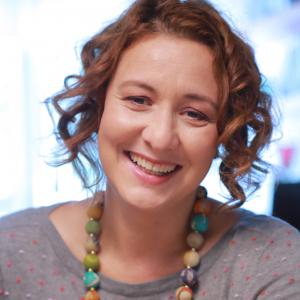Rafael Pinheiro hasn't received any awards — yet. He isn’t famous, or prestigious. But, he sounds excited when he talks about his reporting and how he constantly seeks to learn more. No doubt, he will eventually make it.
Pinheiro is only 20 years old. He is based in Salinas, in the southeastern state of Minas Gerais, Brazil. The city of 40,000 people is known for its production of the Brazilian distilled spirit cachaça. He lives with his parents and two siblings.
There isn't a journalism school in Salinas, and Pinheiro can't afford his studies elsewhere. Upon graduating from high school two years ago, he decided to pursue a career in journalism.
This is when he launched his YouTube channel, TV Central N - Jornalismo. Pinheiro explained that "N" is for notícia [news in Portuguese]. He is the host, with the help of his friends — all of them journalism enthusiasts.
Pinheiro is an IJNet fan and an active follower of our Portuguese Instagram account, attentive to the opportunities and tips we share so he can apply them in practice.
[Read more: 9 worldwide journalism opportunities to apply to in November]
Where does your passion for journalism come from?
As a child, I always preferred pencil and paper over toys. I loved telling stories. When I was nine, a friend asked me what I wanted to do for a living and I said, “To be a journalist.”
She still recalls the moment I created an entire TV news show and presented it to her. I always enjoyed following the news, watching TV news, and knowing what was going on in the world. There is this TV news anchor who was really remarkable during my childhood, Laura Lima, and I wanted to be like her. One of the benefits of social media nowadays is that I can be in touch with many journalists, and get the chance to bounce ideas off them.
What is your work routine like?
I'm the host of a daily music show on a radio station, and always find a way to share the news that I gather. As for the YouTube channel, while I don't make any money out of it, I take it very seriously. We are not able to get things done the way we'd like to everyday. I try to do my best. Media broadcasting is a team job and we stand together.
Without my friends, especially Leonardo Henrique and Pedro Dutra, nothing would be possible. We produce Edição Brasil, a daily roundup of the biggest stories in Brazilian politics and economy. We broadcast local news and news briefs, among other stories. One thing that we are really proud of is that we could report on a key moment of the pandemic in Brazil — the hearings at the Senate for the Parliamentary Commission of Inquiry for COVID-19.
How do you conduct your reporting without proper technical and financial resources?
Producing content is not an easy task. Since we are a group of young people, and not a company, things are even more challenging. One must be creative to do the things the way we do.
There are many challenges, and one of them is the fact that we don't have the proper resources. We do everything with our mobile phones. By the way, recently my phone broke and we had to put things on hold for a while.
Using footage is an issue. Because we are not a news outlet, it is hard to have access to images that we are allowed to use. We have evolved a lot when it comes to technical issues, such as intros and music, though. Hopefully, an obstacle I'll overcome is the time dedicated to editing the videos. I pay close attention to the way each news anchor communicates with their viewers. I love how they have their own way of saying "good morning," "good afternoon" and "good evening." I try to develop my own style when doing the same.
[Subscribe to our newsletter and receive fresh opportunities straight to your inbox]
How has IJNet helped you with your career?
I've been a subscriber of the IJNet newsletter in Portuguese for some years now.
It's always been a place to get to know the behind the scenes of the industry, how people are doing their job, and the best tools out there. It's very useful to me and I'm always sharing content with some friends if it's useful to them as well. Recently I finished two online courses provided by Abraji [the Brazilian Association of Investigative Journalism], and also attended their conference.
What's your biggest dream?
My dream is to have a journalism degree. Even though you don't need a degree to work as a journalist in Brazil, I don't consider myself a journalist, yet. I'll only see myself as a journalist the day when I get my degree.
Currently, I say I'm a "communicator, host/broadcaster and future journalist.” The kind of knowledge you can gain when you go to college is very important to me. I aspire to overcome the hardships, mainly the financial ones, and become a journalist with a degree, work in broadcast journalism and be the host of a TV news show in a big TV station.
I'm really honored by being featured on IJNet. I think that I ended up being chosen to represent an entire generation of young people who love quality journalism, who wish to work in this industry — people who overcome the hurdles and keep fighting.
Photo courtesy of Rafael Pinheiro.
This article was originally published by our Portuguese site. It was translated to English by Priscila Brito Marcelino, our IJNet Portuguese translator.

